Ali Khamenei
Supreme Leader of Iran, Former President of Iran, Shiite cleric
The IRGC is an Iranian government agency tasked with defending the regime against internal and external threats. The IRGC uses secret police methods against its opponents within Iran, and terrorist tactics against its enemies abroad.
June 19, 2024: Canada designates the IRGC as a terrorist entity. Canadian Public Safety Minister Dominic LeBlanc calls the designation a “significant tool in fighting global terrorism.” Canada’s government accuses the IRGC of being a “key part of Iran’s security and intelligence community” and controlling Iran’s ballistic missile and unmanned aerial vehicle arsenal. Canada also calls the IRGC Iran’s “main link to its regional proxies,” including designated terrorist groups Hezbollah and Hamas. Canada had previously designated the Quds Force as a terrorist group in 2012.“Currently Listed Entities,” Public Safety Canada, accessed June 20, 2024, https://www.publicsafety.gc.ca/cnt/ntnl-scrt/cntr-trrrsm/lstd-ntts/crrnt-lstd-ntts-en.aspx#2024-02; Nadine Yousif, “Canada lists Iran’s Revolutionary Guards as a terrorist group,” BBC News, June 20, 2024, https://www.bbc.com/news/articles/cn00nd1n4y2o.
The Islamic Revolutionary Guard Corps (IRGC) is tasked with preserving the Islamic Republic of Iran and the ideals of the 1979 revolution. The IRGC combines traditional military roles with a relentless focus on supposed domestic enemies. The IRGC is Iran’s primary instrument for exporting the ideology of the Islamic Revolution worldwide. It is rigidly loyal to Iran’s clerical elite. The IRGC is Iran’s main link to its terrorist proxies, which the regime uses to boost Iran’s global influence.
Within the IRGC are the Basij militia and the Quds Force (IRGC-QF). The Basij, literally “mobilization,” is a paramilitary organization charged with channeling popular support for the Iranian regime. The Basij is famous for its recruitment of volunteers, many of them teenage children, for human wave attacks during the Iran-Iraq war. Today, the Basij has two missions: to provide defensive military training to protect the regime against foreign invasion, and to suppress domestic anti-regime activity through street violence and intimidation. After the contested 2009 Iranian presidential elections, for example, the Basij brutally quashed protests and attacked student dormitories.
The IRGC’s Quds Force specializes in foreign missions, providing training, funding and weapons to extremist groups, including Iraqi insurgents, Hezbollah, and Hamas. The Quds Force allegedly participated in the 1994 suicide bombing of an Argentine Jewish community center, killing more than 80 and wounding about 300. In the years since, the Quds Force has armed anti-government militants in Bahrain, and assisted in a 2011 assassination attempt on Saudi Arabia’s ambassador to the United States. The Quds Force also plays a key role in support of Syrian regime forces in that country’s civil war.
Domestically, the IRGC exerts political and economic control throughout Iran. In April 2021, Iranian Foreign Minister Javad Zarif complained in an interview the IRGC had more influence in foreign affairs and the country’s nuclear dossier than him. Zarif alleged he had “zero” influence over Iran’s foreign policy and had “never been able to tell a military commander to do something in order to aid diplomacy.”“In leaked recording, Iran’s Zarif criticises Guards’ influence in diplomacy,” Reuters, April 26, 2021, https://www.reuters.com/world/middle-east/leaked-recording-irans-zarif-criticises-guards-influence-diplomacy-2021-04-26/. Through a network of linked front companies, the IRGC has also created a dominant stake in Iran’s economic sector while exerting control over strategic industries to ensure loyalty to the supreme leader.
The IRGC is an Iranian government agency tasked with defending the regime against internal and external threats. Espousing a radical ideology and a paranoid worldview, the IRGC uses secret police methods against its opponents within Iran, and terrorist tactics against its enemies abroad.
Iranian law defines the IRGC as “an institution commanded by the Supreme Leader whose purpose is to protect the Islamic Revolution of Iran and its accomplishments, while striving continuously . . . to spread the sovereignty of God’s law.”“Statute of the Iranian Revolutionary Guards Islamic Revolution,” Islamic Parliament Research Center, ratified September 6, 1982, article 1, http://rc.majlis.ir/fa/law/show/90595.
In the first months after the 1979 Iranian revolution, before its existence was enshrined in law, the IRGC operated as a network of militant activists loyal to revolutionary leader Ruhollah Khomeini. In this role, the IRGC helped to stamp out dissident currents within the revolutionary movement.Afshon P. Ostover, Guardians of the Islamic Revolution: Ideology, Politics, and the Development of Military Power in Iran, 1979-2009, University of Michigan, 2009, 50-52. The IRGC views its task as preserving the “Islamic republican” form of government created by Khomeini, and faithfully implementing the instructions of Supreme Leader Ali Khamenei, who succeeded Khomeini after the latter’s death in 1989. Ahead of Iran’s June 2013 presidential elections, IRGC commanders reportedly made clear through public statements that they would only confirm a president who is loyal to Khamenei.Babak Dehghanpisheh, “Iran Guards Wield Electoral Power behind Scenes,” Reuters, June 4, 2013, http://www.reuters.com/article/2013/06/04/us-iran-election-guards-idUSBRE9530V120130604.
The IRGC today enjoys the power of a government agency, while still maintaining the zeal and fanaticism of an ideologically motivated terrorist group. The IRGC’s mission combines traditional military roles with a relentless focus on pursuing supposed domestic enemies. According to the Ministry of Defense, the IRGC’s role is to “protect [Iran’s] independence, territorial integrity, and national and revolutionary ideals, under the shadow of the orders given by the Commander in Chief, the Grand Ayatollah Imam Khamenei.”“Statement of the Ministry of Defense on the Anniversary of the Founding of the IRGC,” ISNA, April 21, 2014, http://bit.ly/1qFjx84. Political beliefs considered inconsistent with “revolutionary ideals” are treated as military threats. Then-IRGC commander Jafari stated in 2014: “today’s war is not fought on land or sea, it is fought at the level of belief, and the enemy is investing efforts to gain influence inside the Islamic Republican system.”“IRGC Commander: The Corps Supports Religious Authority,” ISNA, May 24, 2014, http://bit.ly/1j4suWo.
The IRGC’s doctrine combines rigid loyalty to Iran’s clerical elite with deep paranoia about the outside world. In IRGC publications, Iran is portrayed as threatened by American and “Zionist” plots, which are said to be capable of exerting great influence within Iran. Allegations of foreign meddling in Iran provide the justification for terrorism abroad, fueling the high-profile international conflicts that provide the basis for ever harsher crackdowns on internal dissent. The IRGC considers “resistance” to Israel and support for so-called resistance groups among its primary regional goals. IRGC propaganda refers to Israel as a conspiracy against the region backed by the United States and the United Kingdom.“IRGC: Iran-Led Resistance Strategy Will Speed Up Collapse of ‘Israel’, Liberation of Quds,” Al-Manar TV, May 21, 2020, https://english.almanar.com.lb/1040800. Through its support for Hezbollah, Hamas, and other terror groups, the IRGC leads what it calls a regional axis of resistance to “speed up the downfall” of Israel and “the liberation of al-Quds,” the Arabic name for Jerusalem.“IRGC: Iran-led resistance strategy will speed up collapse of Israel, liberation of Quds,” PressTV, May 21, 2020, https://www.presstv.com/Detail/2020/05/21/625811/Iran-IRGC-Palestine-Quds-liberation-. The IRGC provides military and strategic aid to its regional proxies. In 2016, for example, the IRGC provided Hezbollah with kits to convert short-range rockets into longer-range missiles, capable of hitting strategic targets inside Israel.Robin Wright, “Iran Entrenches Its “Axis of Resistance” Across the Middle East,” New Yorker, September 20, 2019, https://www.newyorker.com/news/our-columnists/iran-entrenches-its-axis-of-resistance-across-the-middle-east.
Over time, domestic repression has come to overshadow traditional military missions, as the IRGC’s influence has spread into every aspect of Iranian life.Frederic Wehrey et al., The Rise of the Pasdaran: Assessing the Domestic Roles of Iran’s Islamic Revolutionary Guards Corps (Santa Monica, Arlington, and Pittsburgh: RAND Corporation, 2009), 32, http://www.rand.org/content/dam/rand/pubs/monographs/2008/RAND_MG821.pdf. In 2007, following the formal incorporation of the Basij militia into the IRGC, IRGC Commander Mohammad Ali Jafari said, “The new strategic guidelines of the IRGC have been changed by the directives of the Leader of the Revolution [i.e., Supreme Leader Ali Khamenei]. The main mission of the IRGC from now on is to deal with the threats from the internal enemies. [The number-two priority of the corps] is to help the military in case of foreign threats.”Frederic Wehrey et al., The Rise of the Pasdaran: Assessing the Domestic Roles of Iran’s Islamic Revolutionary Guards Corps (Santa Monica, Arlington, and Pittsburgh: RAND Corporation, 2009), 33, http://www.rand.org/content/dam/rand/pubs/monographs/2008/RAND_MG821.pdf.
The IRGC considers its loyalty to Supreme Leader Ali Khamenei a religious imperative. At times, the organization’s devotion to Khamenei slips into hero-worship. In 2014, for example, deputy IRGC commander Mohammad Hejazi credited Khamenei with overruling the objections of scientific experts to direct research towards increased accuracy in ballistic missiles, “resulting in proud accomplishments in this field.”“Commander Hejazi: The Leader’s Orders Led to Increased Accuracy of Ballistic Missiles,” ISNA, April 28, 2014, http://bit.ly/1q2U6JZ.
Islamic Revolutionary Guard Corps
By law, the power to appoint and remove the commander of the IRGC is given to the supreme leader. “Statute of the Iranian Revolutionary Guards Islamic Revolution,” Islamic Parliament Research Center, ratified September 6, 1982, article 29, http://rc.majlis.ir/fa/law/show/90595. The supreme leader also appoints clerical representatives to the various units of the IRGC whose guidance and instructions are binding on commanders.“Statute of the Iranian Revolutionary Guards Islamic Revolution,” Islamic Parliament Research Center, ratified September 6, 1982, article 33, http://rc.majlis.ir/fa/law/show/90595. Iranian law makes “belief and practical obedience to the principle of clerical rule” a condition of membership in the IRGC, further establishing absolute loyalty to Supreme Leader Ali Khamenei as the IRGC’s guiding principle.“Statute of the Iranian Revolutionary Guards Islamic Revolution,” Islamic Parliament Research Center, ratified September 6, 1982, article 34, http://rc.majlis.ir/fa/law/show/90595.
Efforts to normalize the IRGC’s extraordinary role in Iran over the years have resulted in a complex organization chart. Administratively, the IRGC falls under the Joint Armed Forces General Staff, part of the Ministry of Defense. But these layers of oversight do not give Iran’s nominally elected civilian authorities real control over the IRGC, as the entire military remains subordinate to the Supreme National Security Council, which in turn answers to Supreme Leader Ali Khamenei. Wehrey et al., The Rise of the Pasdaran: Assessing the Domestic Roles of Iran’s Islamic Revolutionary Guards Corps (Santa Monica, Arlington, and Pittsburgh: RAND Corporation, 2009), 9-10.
Scholars who study the IRGC have concluded that “individuals appear to matter more than institutions when considering national security decision[-]making.”Wehrey et al., The Rise of the Pasdaran: Assessing the Domestic Roles of Iran’s Islamic Revolutionary Guards Corps (Santa Monica, Arlington, and Pittsburgh: RAND Corporation, 2009), 11. Consequently, scholars have identified personal networks, often based on ties of family, friendship, or joint service in the 1980-1988 Iran-Iraq War as the key factors in IRGC leadership.Will Fulton, “The IRGC Command Network: Formal Structures and Informal Influence,” American Enterprise Institute Iran Tracker, July 18, 2013, http://www.irantracker.org/analysis/fulton-irgc-command-network-july-22-2013. The opacity of the IRGC’s real command structure helps make Iran an erratic and therefore especially dangerous player in regional affairs.
Formed in 2009 on the order of Iranian Supreme Leader Ali Khamenei, the IRGC Intelligence Organization (IRGC-IO) is a domestic and international unit that targets journalists, activists, dual Iranian nationals, and others who oppose the abuses and human rights violations perpetrated by the Iranian regime. The IRGC-IO operates independently and reportedly serves as an ideological counterweight to Iran’s Ministry of Intelligence (MOIS), as it is under direct control of the supreme leader while MOIS is under the control of the Iranian president.Tim Arango, James Risen, Farnaz Fassihi, Ronen Bergman, and Murtaza Hussain, “The Iran Cables: Secret Documents Show How Tehran Wields Power in Iraq,” New York Times, November 19, 2019, https://www.nytimes.com/interactive/2019/11/18/world/middleeast/iran-iraq-spy-cables.html; Jason Brodsky, “The Islamic Revolutionary Guard Corps’ Intelligence Organization in Transition,” United Against Nuclear Iran, June 23, 2022, https://www.unitedagainstnucleariran.com/blog/islamic-revolutionary-guard-corps-intelligence-organization-transition. After Mohammad Kazemi replaced Hossein Ta’eb as head of the IRGC-IO in June 2022, media reports indicated other Iranian security agencies had sought to limit the IRGC-IO’s power.“Exclusive: Other Security Chiefs In Iran Want To Limit IRGC Intelligence,” Iran International, June 24, 2022, https://www.iranintl.com/en/202206243080. With the spread of anti-regime protests in Iran in the fall of 2022, the IRGC-IO and MOIS accused foreign intelligence agencies of instigating and financing the protests.“Iran’s Intelligence Ministry, IRGC Intelligence Organization Highlight Role of Foreign Spy Agencies in Recent Riots,” Tasnim News Agency, October 29, 2022, https://www.tasnimnews.com/en/news/2022/10/29/2795416/iran-s-intelligence-ministry-irgc-intelligence-organization-highlight-role-of-foreign-spy-agencies-in-recent-riots. The United States sanctioned the IRGC-IO on April 27, 2023, for its role in the hostage-taking or wrongful detention of U.S. nationals in Iran.“Treasury Sanctions Officials of Iranian Intelligence Agency Responsible for Detention of U.S. Nationals in Iran,” U.S. Department of the Treasury, April 27, 2023, https://home.treasury.gov/news/press-releases/jy1444. According to the U.S. Department of State, the IRGC-IO has been involved in the wrongful detention of at least one U.S. national abroad.“Sanctioning Russian Federation and Iranian State Actors Responsible for the Wrongful Detention of U.S. Nationals,” U.S. Department of State, April 27, 2023, https://www.state.gov/sanctioning-russian-federation-and-iranian-state-actors-responsible-for-the-wrongful-detention-of-u-s-nationals/.
Basij
The Basij militia, whose name means “mobilization,” is a paramilitary organization tasked with channeling popular support for the Islamic Republican regime. The Basij was created on April 30, 1980, to assist the IRGC in maintaining order.Ali Alfoneh, “The Basij Resistance Force | The Iran Primer,” U.S. Institute of Peace, October 6, 2020, https://iranprimer.usip.org/resource/basij-resistance-force. The Basij is most famous for its recruitment of volunteers, many of them teenage children, for human wave attacks on Iraqi forces during the Iran-Iraq War in which thousands died. Following the Iran-Iraq War, the Basij assumed a police role in Iran to maintain loyalty to the regime and suppress protests.Ali Alfoneh, “The Basij Resistance Force | The Iran Primer,” U.S. Institute of Peace, October 6, 2020, https://iranprimer.usip.org/resource/basij-resistance-force. Today, the Basij has two missions: giving military training to regime supporters to prepare them to resist foreign invasion, and helping suppress domestic opposition to the regime through street violence and intimidation. According to the 1980 Iranian law that created the Basij, the militia’s purpose is “to train and organize all volunteers for encountering any threat and invasion against the accomplishments of the Islamic revolution from inside and outside.”“Basij, The Oppressive Arm Of The Iranian Regime,” Radio Farda, January 4, 2018, https://en.radiofarda.com/a/basij-the-oppressive-arm-of-the-iranian-regime-/28954794.html.
The Basij presents itself as a popular volunteer association, although it is very much an organ of the state. The group’s “regular members,” said to number more than ten million, are unpaid volunteers motivated by ideological zeal or the hopes of advancement. Its “active members” receive salaries and work full time to organize the volunteer members. According to U.S. government estimates, the Basij comprise 100,000 active members, while hundreds of thousands of volunteers could be mobilized in war.“Iran’s Foreign and Defense Policies,” Congressional Research Service, last updated April 29, 2020, 17, https://crsreports.congress.gov/product/pdf/R/R44017. The group has been nominally subordinate to the IRGC since the early 1980s, and organizational changes in recent years have increased the IRGC’s direct control over the Basij, apparently to better manage the two groups’ repression of internal dissent.Ali Alfoneh, “The Basij Resistance Force | The Iran Primer,” United States Institute of Peace, accessed February 27, 2015, http://iranprimer.usip.org/resource/basij-resistance-force. The Basij were formally incorporated into the IRGC in July 2008 and report directly to the IRGC commander-in-chief.“Iran’s Foreign and Defense Policies,” Congressional Research Service, last updated April 29, 2020, 17, https://crsreports.congress.gov/product/pdf/R/R44017; Ali Alfoneh, “The Basij Resistance Force | The Iran Primer,” U.S. Institute of Peace, October 6, 2020, https://iranprimer.usip.org/resource/basij-resistance-force.
Khatam al-Anbia
Created in 1989, Iran’s Khatam al-Anbia (KAA) is an IRGC-controlled engineering firm that acts as the organization’s construction arm.Frederic Wehrey et al., The Rise of the Pasdaran: Assessing the Domestic Roles of Iran’s Islamic Revolutionary Guards Corps (Santa Monica, Arlington, and Pittsburgh: RAND Corporation, 2009), 60, http://www.rand.org/content/dam/rand/pubs/monographs/2008/RAND_MG821.pdf. KAA maintains more than 800 subsidiaries, collectively employing more than 40,000 people.“IRGC Campaign,” United Against Nuclear Iran,” United Against Nuclear Iran, accessed February 14, 2017, http://www.unitedagainstnucleariran.com/irgc/. Approximately 70 percent of the firm’s business is believed to be military-related.Frederic Wehrey et al., The Rise of the Pasdaran: Assessing the Domestic Roles of Iran’s Islamic Revolutionary Guards Corps (Santa Monica, Arlington, and Pittsburgh: RAND Corporation, 2009), 62, http://www.rand.org/content/dam/rand/pubs/monographs/2008/RAND_MG821.pdf. KAA has played a role in building Iran’s nuclear infrastructure, including the country’s nuclear facilities at Qom and Fordow.“UANI Launches World Wide Web Campaign, Calls on ICANN and RIPE to Disconnect and Cease Business with Sanctioned Iranian Entities,” United Against Nuclear Iran, September 18, 2012, http://www.unitedagainstnucleariran.com/news/uani-launches-world-wide-web-campaign-calls-icann-and-ripe-disconnect-and-cease-business-sancti
The company has won more than 17,000 no-bid contracts from the government.“IRGC Campaign,” United Against Nuclear Iran,” accessed February 14, 2017, http://www.unitedagainstnucleariran.com/irgc/. For example, in December 2012, KAA was reportedly set to begin construction of the “world’s tallest dam” in Iran after the government canceled a $2 billion contract with a Chinese firm and turned the project over to the IRGC.Joanna Paraszczuk, “Iran ready to construct ‘world’s tallest dam,’” Jerusalem Post, December 19, 2012, http://www.jpost.com/Iranian-Threat/News/Iran-ready-to-construct-worlds-tallest-dam. According to United Against Nuclear Iran, “Through Khatam al-Anbia, the IRGC has succeeded in assuming a dominant role in Iran’s oil and gas industry.”“IRGC Campaign,” United Against Nuclear Iran,” accessed February 14, 2017, http://www.unitedagainstnucleariran.com/irgc/. Khatam al-Anbia has become one of Iran’s largest contractors in industrial and development projects. In February 2022, the Iranian parliament’s Budget Reconciliation Committee announced a deal with Khatam al-Anbia to complete unfinished prayer houses in exchange for more than $477 million in crude oil.“Another Day, Another Financial Boost for the Revolutionary Guards,” Iran Wire, February 10, 2022, https://iranwire.com/en/features/11289.
Quds Force
The Quds Force (IRGC-QF) is a special branch of the IRGC tasked with achieving sensitive missions beyond Iran’s borders. The IRGC-QF has played an active role in providing training and weapons to extremist groups including Iraqi insurgents, Lebanese Hezbollah, and others. The group’s commander is Brigadier General Ismail Ghaani, who was appointed to the role after the January 3, 2020, assassination of the group’s longtime leader, Major General Qasem Soleimani.Ahmed Rasheed and Ahmed Aboulenein, “U.S. says it disrupted ‘imminent attack’ with killing of top Iran commander,” Reuters, last updated January 3, 2020, https://www.reuters.com/article/us-iraq-security-blast/u-s-says-it-disrupted-imminent-attack-with-killing-of-top-iran-commander-idUSKBN1Z11K8. In addition to overseeing the group’s violent attacks, Soleimani served as an emissary of Supreme Leader Ali Khamenei, reportedly using a combination of violence and bribes to wield enormous influence over the politics of neighboring Iraq. He was also said to coordinate much of Iran’s support for the Ba’ath regime in the Syrian civil war.Dexter Filkins, “The Shadow Commander,” New Yorker, September 30, 2013, http://www.newyorker.com/magazine/2013/09/30/the-shadow-commander.
General Hossein Hamedani, deputy commander of an IRGC volunteer unit, told an Iranian news agency in 2008 that the IRGC is providing weapons to “liberation armies” in the Middle East, including groups in Lebanon and Iraq.Ali Akbar Dareini, “Iranian General Reports Arming ‘Liberation Armies,’” USA Today, October 27, 2008, http://usatoday30.usatoday.com/news/world/2008-10-27-2687460468_x.htm. Such liaisons are the responsibility of the IRGC-QF.
Since Ghaani took control of the Quds Force, however, there have been numerous reports that he has been unable to exert the same influence over Iran’s terrorist proxies. According to media sources, Ghaani allegedly does not have the same expertise as his predecessor and does not have a rapport with Khamenei or his office—a critical element of his role as commander of the Quds Force.Martin Chulov, “Iraqi militias grow in power as Iran’s military strongman proves too weak,” Guardian, July 26, 2021, https://www.theguardian.com/world/2021/jul/26/suleimani-successor-fails-to-convince-at-summit. These allegations were exacerbated following a November 7, 2021, drone attack on the Baghdad home of Iraqi Prime Minister Mustafa al-Kadhimi. Suspicions fell on Iran-backed militias, particularly Asaib Ahl al-Haq (AAH) and Kata’ib Hezbollah (KH). The militias and Iran denied involvement in the attack, which lightly wounded Kadhimi and wounded seven members of his security detail. Ghaani visited Baghdad on November 8 and denied Tehran had any connection to the attack.Hamdi Alkhshali, “Iraqi Prime Minister survives exploding drone assassination attempt,” CNN, last updated November 8, 2021, https://www.cnn.com/2021/11/06/middleeast/iraq-prime-minister-drone-attack-intl-hnk/index.html; “Iran-backed militia behind attack on Iraqi PM -security officials, sources,” Reuters, last updated November 8, 2021, https://www.reuters.com/world/middle-east/iran-backed-militia-behind-attack-iraqi-pm-sources-2021-11-08/; Qassim Abdul-Zahra, “Powerful Iranian general visited Iraq after attack on PM,” Associated Press, November 8, 2021, https://apnews.com/article/middle-east-religion-iran-iraq-tehran-8cfe754e681581f511f430f4bd31e776. Following the attack, reports emerged of fractures between Iran and its proxies. AAH and KH have reportedly openly defied orders from Ghaani. AAH commander Qais al-Khazali and KH commander Abu Hussein al-Hamidawi allegedly told the Iranians that Tehran’s support for Kadhimi receiving a second term in Iraq’s October 2021 elections broke the allies’ bond. Some security analysts in Iraq alleged Ghaani had lost control over the Iraqi militias.Suadad al-Salhy, “Betrayed by Iran? Iraqi armed factions given ‘slap’ with Kadhimi drone attack,” Middle East Eye, November 29, 2021, https://www.middleeasteye.net/news/iraq-iran-kadhimi-drone-attack-armed-groups-betrayed; Jared Malsin, Ghassan Adnan, and Benoit Faucon, “Iraq Struggles to Control Iran-Allied Militias Believed Responsible for Attack on Prime Minister,” Wall Street Journal, November 9, 2021, https://www.wsj.com/articles/iraq-struggles-to-control-iran-allied-militias-believed-responsible-for-attack-on-prime-minister-11636475084. On February 3, 2022, U.S. General Frank McKenzie, head of U.S. Central Command, declared Ghaani “does not exercise the same degree of control over Iranian-aligned militia groups” as Soleimani did.Joyce Karam, “Iran’s Quds force commander struggling to control proxy militias, top US general says,” National (Abu Dhabi), February 3, 2022, https://www.thenationalnews.com/world/us-news/2022/02/03/irans-quds-force-commander-struggling-to-control-proxy-militias-top-us-general-says/. As a result, other branches of the IRGC have reportedly taken a larger role in coordinating with Iran’s proxies.Yaakov Lappin, “Nearly two years after Soleimani assassination, IRGC takes over roles reserved for Quds Force,” Jewish News Syndicate, October 19, 2021, https://www.jns.org/nearly-two-years-after-soleimani-assassination-irgc-takes-over-roles-once-reserved-for-quds-force/.
General
The IRGC is the third-wealthiest organization in Iran after the National Iranian Oil Company and the Imam Reza Endowment.Hossein Aryan, "Iran's Basij Force – The Mainstay of Domestic Security,” Radio Free Europe/Radio Liberty, January 15, 2009, http://www.rferl.org/content/Irans_Basij_Force_Mainstay_Of_Domestic_Security/1357081.html. Due to its vast wealth, the IRGC is able to use a very simple recruitment tactic: money. The IRGC attracts young men by paying them up to $265 a month.“Hama Media Office: IRGC Presence ‘Noticeable,’” Syria Direct, February 26, 2015, http://syriadirect.org/main/36-interviews/1857-hama-media-office-irgc-presence-noticable. In 1982, the IRGC created its first high school in Tehran to train and indoctrinate young men into the organization. The IRGC opened similar schools throughout the country. Graduates went on to join the IRGC and Basij. The program ended and the schools closed in 1999, but the IRGC announced plans in early 2015 to reopen affiliated high schools. Saeed Aganji, “IRGC to reopen its own high schools,” Al-Monitor, February 24, 2015, http://www.al-monitor.com/pulse/originals/2015/02/iran-irgc-sepah-high-school.html.
The Basij and Quds Force operate under the IRGC and are responsible for the bulk of the umbrella organization’s recruitment. Both groups have developed an organized method of enrollment and training. Both the Basij and the Quds Force strategically place recruiters near holy sites, mosques, schools, and community centers to attract volunteers.Anthony H. Cordesman, “Iran’s Revolutionary Guards, the Al Quds Force, and Other Intelligence and Paramilitary Forces,” Center for Strategic & International Studies, August 16, 2007 http://csis.org/files/media/csis/pubs/070816_cordesman_report.pdf. The IRGC also trains foreign fighters from groups like Hezbollah and Hamas.Mark Mazzetti, “Striking Deep Into Israel, Hamas Employs an Upgraded Arsenal,” New York Times, December 31, 2008, http://www.nytimes.com/2009/01/01/world/middleeast/01rockets.html.
Basij
Training
The Basij is a paramilitary organization operating under the IRGC that relies heavily on volunteers as well as paid members. The Basij constitution highlights the importance of training, stating that one of the force’s most important responsibilities is to train volunteers to “defend the country and the Islamic Republic regime.”Dr. Saeid Golkar, “The Ideological-Political Training of Iran’s Basij,” Brandeis University Crown Center for Middle East Studies, September 2010, http://www.brandeis.edu/crown/publications/meb/MEB44.pdfl. The Basij is increasingly being used to quell internal unrest in Iran and, consequently, has become highly organized.
The Basij has an extensive membership of regular, active, and special recruits. Each classification is based on the volunteer’s level of training and, to a lesser degree, on his level of commitment.Dr. Saeid Golkar, “The Ideological-Political Training of Iran’s Basij,” Brandeis University Crown Center for Middle East Studies, September 2010, http://www.brandeis.edu/crown/publications/meb/MEB44.pdf.
The Basij relies heavily on Ideological-Political Trainers (IPTs) to indoctrinate and educate its fledgling members. IPTs are divided into three groups: organizational, non-organizational, and invited members. Organizational and non-organizational IPTs typically hold high school degrees, while invited trainers are usually well-connected and well-educated.Dr. Saeid Golkar, “The Ideological-Political Training of Iran’s Basij,” Brandeis University Crown Center for Middle East Studies, September 2010, http://www.brandeis.edu/crown/publications/meb/MEB44.pdf. Trainees are also required to attend at least 18 hours of ideological and political courses on subjects like “Major Islamic Commandments.”Dr. Saeid Golkar, “The Ideological-Political Training of Iran’s Basij,” Brandeis University Crown Center for Middle East Studies, September 2010, http://www.brandeis.edu/crown/publications/meb/MEB44.pdf.
The next level of training consists of courses that include “Jihad and Defense of the Quran,” and “Fluency in Reading the Quran.” Specialized training courses in areas such as advanced psychological warfare and anti-riot training last even longer but are not mandatory. Only after completing this final level of training can Basij members go to mosques, schools, and factories to organize.Dr. Saeid Golkar, “The Ideological-Political Training of Iran’s Basij,” Brandeis University Crown Center for Middle East Studies, September 2010, http://www.brandeis.edu/crown/publications/meb/MEB44.pdf. Basic Basij members are also trained in practical matters such as weaponry, guard duty, civil defense, and first aid.“Dr. Saeid Golkar, “The Ideological-Political Training of Iran’s Basij,” Brandeis University Crown Center for Middle East Studies, September 2010, http://www.brandeis.edu/crown/publications/meb/MEB44.pdf.
IPTs are themselves educated by a network of political guides. IPTs are taught subjects like Islamic commandments, the Quran, the history of Islam, sociopolitical knowledge, and the fundamentals of belief.“Dr. Saeid Golkar, “The Ideological-Political Training of Iran’s Basij,” Brandeis University Crown Center for Middle East Studies, September 2010, http://www.brandeis.edu/crown/publications/meb/MEB44.pdf.
Recruitment
Basij recruitment relies heavily on the cooperation of local and regional mosques. Members are recruited under “clergical [sic] supervision and trusted citizens.” Paid Basij positions are available by application at Basij central offices.Ali Alfoneh, “The Basij Resistance Force | The Iran Primer,” United States Institute of Peace, http://iranprimer.usip.org/resource/basij-resistance-force.
The Basij also target Iranian schools for recruitment.“Basij, The Oppressive Arm Of The Iranian Regime,” Radio Farda, January 4, 2018, https://en.radiofarda.com/a/basij-the-oppressive-arm-of-the-iranian-regime-/28954794.html. The Iranian parliament passed a 1996 law authorizing the government to create children’s Basij units. The Basij expanded their recruitment activities in Iranian schools after the disputed 2009 presidential elections, when Basij militants helped to violently suppress protests.Hossein Aryan, “How Schoolchildren Are Brainwashed In Iran,” Radio Farda, May 27, 2010, https://www.rferl.org/a/Commentary_How_Schoolchildren_Are_Brainwashed_In_Iran/2054304.html. In November 2009, the Basij established 6,000 “resistance centers” in the nation’s elementary schools to promote the ideals of the Iranian Revolution.Robert F. Worth, “Iran Expanding Effort to Stifle the Opposition,” New York Times, November 24, 2009, http://www.nytimes.com/2009/11/24/world/middleeast/24iran.html. By 2010, the so-called Student Basij included 4.6 million members. These students were divided into units based on age: Omidan (“Hopes”) in elementary schools, Pouyandegan (“Seekers”) in middle schools, and Pushgaman (“Standard Bearers”) in high schools.“Basij, The Oppressive Arm Of The Iranian Regime,” Radio Farda, January 4, 2018, https://en.radiofarda.com/a/basij-the-oppressive-arm-of-the-iranian-regime-/28954794.html.
Quds Force
Training
The Quds Force is a special unit of the Revolutionary Guard that oversees weapons and training.Paul Richter, “Top Iranians Direct Iraq Missions,” Los Angeles Times, October 24, 2007, http://articles.latimes.com/2007/oct/24/world/fg-usiran24. Basic training can last anywhere from three to nine months and takes place at three main facilities in Iran. The first is the Imam Ali Base near Tehran, which specializes in ground training for foreign fighters. The second is the Wali-e-Assar Base in Shiraz and the third is the “Jerusalem Operation” College in Qom, where trainees study spirituality and ideology. There are other smaller training facilities throughout the country that are used to train armed groups from foreign countries as well.Dore Gold, “Inside the Octopus: Unraveling Iran’s terrorist Quds Force,” Israel Hayom, March 16, 2012, http://www.israelhayom.com/site/newsletter_article.php?id=3532. The Quds Force helps operate the Manzariyah training center in Iran near the holy city of Qom. The Manzariyah training center recruits from a pool of foreign students studying at a nearby religious seminary.Anthony H. Cordesman, “Iran’s Revolutionary Guards, the Al Quds Force, and Other Intelligence and Paramilitary Forces,” Center for Strategic & International Studies, August 16, 2007, http://csis.org/files/media/csis/pubs/070816_cordesman_report.pdf.
Recruitment
The Quds Force sets up recruitment offices near Islamic holy sites to attract a wide variety of devout people from many nationalities throughout the Muslim world, including Saudi Arabia, Syria, and Iraq. The most important recruitment office is in the “Dar al-Tawahid” hotel in Mecca, Saudi Arabia.Dore Gold, “Inside the Octopus: Unraveling Iran's terrorist Quds Force,” Israel Hayom, March 16, 2012, http://www.israelhayom.com/site/newsletter_article.php?id=3532. The Quds force helps operate the Manzariyah training center in Iran near the holy city of Qom. The Manzariyah training center recruits from a pool of foreign students studying at a nearby religious seminary.Anthony H. Cordesman, “Iran’s Revolutionary Guards, the Al Quds Force, and Other Intelligence and Paramilitary Forces,” Center for Strategic & International Studies, August 16, 2007, http://csis.org/files/media/csis/pubs/070816_cordesman_report.pdf. The Quds Force also recruits in Iraq, where they reportedly paid Iraqi Shiites up to $150 per month to go to Iran to train during the anti-U.S. insurgency.“Experts: Iran’s Quds Force Deeply Enmeshed in Iraq,” Fox News, February 16, 2007, http://www.foxnews.com/story/2007/02/16/experts-iran-quds-force-deeply-enmeshed-in-iraq/.
IRGC
The Trump administration claimed that it forced the Iranian regime to reduce its military spending by 30 percent since the administration began re-imposing financial sanctions in 2017. Iranian officials have dismissed the effectiveness of renewed sanctions.Andrew England and Najmeh Bozorgmehr, “Iran sustains military spending in face of US sanctions,” Financial Times, February 24, 2020, https://www.ft.com/content/d03c20ce-548c-11ea-90ad-25e377c0ee1f. Iran’s defense budget ranges from approximately $10 billion to $15 billion annually. Of that, the IRGC receives approximately two-thirds.“Iran’s Foreign and Defense Policies,” Congressional Research Service, last updated April 29, 2020, 15, https://crsreports.congress.gov/product/pdf/R/R44017. Shortly after the death of Quds Force commander Qasem Soleimani in a U.S. airstrike in January 2020, the Iranian government increased its budget for the Quds Force by more than €200 million over the following two months.Najmeh Bozorgmehr, “Iran considers options for retribution over Soleimani killing,” Financial Times, January 7, 2020, https://www.ft.com/content/d74a76c6-308e-11ea-9703-eea0cae3f0de. The funding increase was part of a bill called “Counter-Measures Against U.S.,” which Iran’s parliament approved by a vote of 229-3.“Khamenei Orders Additional 200m Euros To Qods Force In Next Two Months,” Radio Farda, January 7, 2020, https://en.radiofarda.com/a/iran-khamenei-orders-additional-200m-euros-to-qods-in-next-two-months/30364067.html. Iran’s 2021 budget provided the IRGC with an allocation of 403 trillion rials, almost double the 212.79 trillion rials allocated toward Iran’s conventional military. On December 12, 2021, Iranian President Ebrahim Raisi submitted a proposed 2022 budget to parliament that more than doubled the IRGC’s government allocation to 930 trillion rials (U.S. $22 billion).Agnes Helou, “Iran more than doubles Revolutionary Guard’s budget in FY22 bill,” Defense News, December 16, 2021, https://www.defensenews.com/global/mideast-africa/2021/12/16/iran-more-than-doubles-revolutionary-guards-budget-in-fy22-bill/.
Iran has consistently increased its budget allocations to the IRGC in recent years. The IRGC received a reported 24 percent increase in Iran’s proposed 2017-18 fiscal budget, up from $4.5 billion to $7.4 billion. The IRGC’s allocation represented 53 percent of Iran’s defense budget.https://www.fdd.org/analysis/2017/03/31/irans-revolutionary-guard-gets-a-raise/. Iran’s military budget has reportedly experienced a 70 percent increase in funding during President Hassan Rouhani’s tenure,“Budget Bill in Parliament,” Financial Tribune, December 5, 2016, https://financialtribune.com/articles/domestic-economy/54697/budget-bill-in-parliament. growing from $3.3 billion in FY 2013-14 to more than $5 billion after Rouhani assumed the presidency in 2013. Ahead of the FY 2016 budget, however, Rouhani reportedly sought to cut the IRGC’s budget in favor of Iran’s army.Abbas Qaidaari, “Rouhani moves to slash IRGC budget, empower army,” Al-Monitor, May 5, 2016, http://www.al-monitor.com/pulse/originals/2016/05/iran-military-spending-irgc-budget-reduced-army-increase.html. The Iranian parliament rejected the cut and raised the IRGC’s budgetary allocation.J. Matthew Mcinnis, “Rouhani hopes the new parliament will give him a break,” Newsweek, May 6, 2016, http://www.newsweek.com/rouhani-hopes-parliament-gives-him-break-455673. Rouhani reportedly cut the IRGC’s budget by 17 percent in his proposed 2019-2020 budget submitted in December 2018.Saeed Ghasseminejad and Tzvi Khan, “New Iranian Draft Budget Slashes Military Spending,” Foundation for Defense of Democracies, January 8, 2019, https://www.fdd.org/analysis/2019/01/08/new-iranian-draft-budget-slashes-military-spending/. In 2020 alone, the IRGC budget reached $6.96 billion, triple the total budget of Iran’s army and approximately 20 times more than the budget for Iran’s defense department. In December 2020, the proposed budget for 2021-2022 reportedly included a 65 percent increase for the IRGC.Bahram Khodabandeh, “The Revolutionary Guards’ Outsize Share of Iran’s Next Budget,” Iran Wire, December 10, 2020, https://iranwire.com/en/features/8279; Henry Rome, “Iran’s Defense Spending,” U.S. Institute of Peace, June 17, 2020, https://iranprimer.usip.org/blog/2020/jun/17/iran%E2%80%99s-defense-spending.
Despite the increases, in June 2021 Iranian President Hasan Rouhani cut the IRGC’s funding for missile production by about 50 percent and also cut funding to the Quds Force, leading IRGC commander Hossein Salami and Quds Force commander Ismail Ghaani to file a complaint with Supreme Leader Ali Khamenei. Salami reportedly asked Khameini to use his own cash budget to transfer the funds needed by the Quds Force to pay the salaries of its fighters and to intervene and force the government to stop its alleged hostile actions.“Iran’s Rouhani cuts Quds Force budget, blocks missiles manufacturing funds,” Middle East Monitor, June 2, 2021, https://www.middleeastmonitor.com/20210602-irans-rouhani-cuts-quds-force-budget-blocks-missiles-manufacturing-funds/; “Major General Hossein Salami: Commander-in-Chief of the Islamic Revolutionary Guard Corps,” United Against Nuclear Iran, accessed August 25, 2021, https://www.unitedagainstnucleariran.com/major-general-hossein-salami-commander-chief-of-islamic-revolutionary-guard-corps. At the same time as the alleged budget cuts, reports emerged of Qatari financial support for the IRGC. In late June 2021, outgoing Israeli President Reuven Rivlin delivered intelligence to the White House of the Qatari support. In July 2021, the U.S. State Department opened an investigation into the allegations.Jacob Magid, “Old friends: Rivlin leaves Washington, confident Biden is in Israel’s corner,” Times of Israel, June 29, 2021, https://www.timesofisrael.com/old-friends-rivlin-leaves-washington-confident-biden-is-in-israels-corner/; Benjamin Weinthal and Jothan Spyer, “US investigates Qatar over claims that it finances Iran’s Revolutionary Guards Corps,” Washington Examiner, July 23, 2021, https://www.washingtonexaminer.com/news/us-investigates-qatar-claims-finances-iran-revolutionary-guard; J.P. Lawrence, “US military shifts Army basing from Qatar to Jordan in move that could provide leverage against Iran,” Stars and Stripes, July 1, 2021, https://www.stripes.com/branches/army/2021-07-01/us-military-closes-qatar-camps-in-move-that-could-play-into-iran-policy-2009140.html.
The IRGC is also Iran’s most powerful economic actor, according to the U.S. Treasury Department, which labeled the National Iranian Oil Company “an agent or affiliate of the Revolutionary Guards.”“Treasury Links Iran Oil to Elite Military,” U.S. Institute of Peace, September 25, 2012, http://iranprimer.usip.org/blog/2012/sep/25/treasury-links-iran-oil-elite-military. According to a 2017 assessment by then-CIA Director Mike Pompeo, IRGC-linked companies control up to 20 percent of Iran’s economy.Michael R. Gordon, Warren P. Strobel, and Nancy A. Youssef, “U.S. to Designate Iranian Guard Corps a Foreign Terror Group,” Wall Street Journal, April 5, 2019, https://www.wsj.com/articles/u-s-to-designate-iranian-guard-corps-a-foreign-terrorist-organization-11554499401. In July 2018, the city council of Tehran announced that the IRGC Cooperative Foundation, which manages the IRGC’s investments, had embezzled more than $1 billion from the city of Tehran.“Designation of the Islamic Revolutionary Guard Corps,” U.S. Department of State, April 8, 2019, https://www.state.gov/r/pa/prs/ps/2019/04/290963.htm.
Within the IRGC, the Quds Force exerts control over strategic industries, commercial services, and black-market enterprises.Greg Bruno, Jayshree Bajoria, and Jonathan Masters, “Iran’s Revolutionary Guards,” Council on Foreign Relations, June 14, 2013, http://www.cfr.org/iran/irans-revolutionary-guards/p14324. According to a 2007 Los Angeles Times report, the IRGC has ties to over 100 companies, controlling over $12 billion.Kim Murphy, “Iran’s $12-Billion Enforcers,” Los Angeles Times, August 26, 2007, http://articles.latimes.com/2007/aug/26/world/fg-guards26. These funds are used to exert influence in Iran and Iranian proxies. According to Ray Takeyh of the Council on Foreign Relations, the IRGC is “heavily involved in everything from pharmaceuticals to telecommunications and pipelines – even the new Imam Khomeini Airport and a great deal of smuggling. Many of the front companies engaged in procuring nuclear technology are owned and run by the Revolutionary Guards. They're developing along the lines of the Chinese military, which is involved in many business enterprises. It's a huge business conglomeration.”Robin Wright, “Iranian Unit to Be Labeled ‘Terrorist,’” Washington Post, August 15, 2007, http://www.washingtonpost.com/wp-dyn/content/article/2007/08/14/AR2007081401662.html.
After the 2015 nuclear agreement—which opened Iran’s economy to the international market, Iranian President Hassan Rouhani’s government attempted to restrict the IRGC’s economic power in Iran, open Iran’s economy internationally, and attract foreign investors by canceling government contracts with IRGC subsidiaries. An unidentified IRGC source told Reuters in November 2016 that any U.S. attempt to restrict the Iranian economy from global markets would result in the IRGC regaining its economic control of Iran.Parisa Hafezi, “Iran’s Guards using Trump victory to claw back power,” Reuters, November 21, 2016, http://www.reuters.com/article/us-iran-politics-guards-idUSKBN13G1NB. In March 2016, Khamenei called for the IRGC to play a larger role in creating a “resistance economy” in Iran, independent of the international community.Bozorgmehr Sharafedin, “Revolutionary Guards look to play bigger role in Iran's economy,” Reuters, March 22, 2016, http://www.reuters.com/article/us-iran-economy-irgc-idUSKCN0WO137.
In August 2015, Reuters reported that the IRGC stood to benefit from the lifting of economic sanctions against Iran as part of the P5+1 nuclear deal. One beneficiary Reuters highlighted is IRGC conglomerate KAA, which reportedly controls at least 812 affiliated companies worth billions of dollars.Babak Deghghanpisheh and Yeganeh Torbati, “Firms linked to Revolutionary Guards to win sanctions relief under Iran deal,” Reuters, August 9, 2015, http://www.reuters.com/article/2015/08/09/us-iran-nuclear-sanctions-idUSKCN0QE08320150809;
“Islamic Revolutionary Guard Corps (IRGC),” United Against Nuclear Iran, accessed February 14, 2017, https://www.unitedagainstnucleariran.com/report/islamic-revolutionary-guard-corps-irgc. KAA subsidiary companies have been sanctioned by the United States, the European Union, and the United Nations as “proliferators of weapons of mass destruction,” according to the U.S. government.Babak Deghghanpisheh and Yeganeh Torbati, “Firms linked to Revolutionary Guards to win sanctions relief under Iran deal,” Reuters, August 9, 2015, http://www.reuters.com/article/2015/08/09/us-iran-nuclear-sanctions-idUSKCN0QE08320150809. The IRGC reportedly controlled one-third of Iran’s economy as of 2010.Mark Gregory, “Expanding business empire of Iran’s Revolutionary Guards,” BBC News, July 26, 2010, http://www.bbc.com/news/world-middle-east-10743580. As of November 2016, the group viewed the possibility of renewed sanctions against Iran and the threat posed by ISIS as pathways to limiting foreign investment in Iran and reestablishing IRGC control of the economy.Parisa Hafezi, “Iran’s Guards using Trump victory to claw back power,” Reuters, November 21, 2016, http://www.reuters.com/article/us-iran-politics-guards-idUSKBN13G1NB.
In addition to its roles in Iran’s other economic sectors, the IRGC also profits from Iran’s oil industry. On October 26, 2020, the U.S. government sanctioned the Iranian Ministry of Petroleum, the National Iranian Oil Company, and the National Iranian Tanker Company for their financial support to the Quds Force. U.S. Treasury Secretary Steven Mnuchin accused Iran of using “the petroleum sector to fund the destabilizing activities of the IRGC-QF.”“Treasury Sanctions Key Actors in Iran’s Oil Sector for Supporting Islamic Revolutionary Guard Corps-Qods Force,” U.S. Department of the Treasury, October 26, 2020, https://home.treasury.gov/news/press-releases/sm1165.
In October 2017, the U.S. government designated the IRGC as a terrorist organization and levied financial sanctions against it for the IRGC’s support of the Quds Force, as well as Hamas, Hezbollah, and the Taliban.“Non-proliferation Designations; Iran Designations; Counter Terrorism Designation Update,” U.S. Department of the Treasury, October 13, 2017, https://www.treasury.gov/resource-center/sanctions/OFAC-Enforcement/Pages/20171013.aspx; “Treasury Designates the IRGC under Terrorism Authority and Targets IRGC and Military Supporters under Counter-Proliferation Authority,” U.S. Department of the Treasury, October 13, 2017, https://www.treasury.gov/press-center/press-releases/Pages/sm0177.aspx. In March 2018, members of the U.S. House of Representatives Foreign Affairs Committee began discussing additional sanctions on entities in which the IRGC has a 50-percent-or-less ownership stake in order to punish IRGC front companies.“Royce, Engel Introduce Bill Targeting Iran’s Revolutionary Guards Corps,” U.S. House of Representatives Foreign Affairs Committee, March 1, 2018, https://foreignaffairs.house.gov/press-release/royce-engel-introduce-bill-targeting-irans-revolutionary-guards-corps/. The U.S. government designated the IRGC as a foreign terrorist organization in April 2019, opening the possibility of levying additional sanctions on IRGC-related businesses.“Iran will retaliate in kind if U.S. designates Guards as terrorists: MPs,” Reuters, April 7, 2019, https://www.reuters.com/article/us-usa-iran-guards/iran-will-retaliate-in-kind-if-u-s-designates-guards-as-terrorists-mps-idUSKCN1RJ07U; “Designation of the Islamic Revolutionary Guard Corps,” U.S. Department of State, April 8, 2019, https://www.state.gov/r/pa/prs/ps/2019/04/290963.htm; “The Latest: Iran responds to US, labels CENTCOM terrorist.” Associated Press, April 8, 2019, https://www.apnews.com/f635668cc3d6478984ddcb39dd7c78c8. According to U.S. Treasury Secretary Steven T. Mnuchin, “Iran employs a web of front companies to fund terrorist groups across the region, siphoning resources away from the Iranian people and prioritizing terrorist proxies over the basic needs of its people.”“Treasury Designates Vast Network of IRGC-QF Officials and Front Companies in Iraq, Iran,” U.S. Department of the Treasury, March 26, 2020, https://home.treasury.gov/news/press-releases/sm957.
The United States has since sanction-designated multiple Iranian businesses and their leaders for ties to the IRGC. In October 2019, the U.S.-led Terrorist Financing Targeting Center (TFTC) jointly designated 25 targets accused of supporting the IRGC and Hezbollah. Included in the sanctions were 21 businesses accused of providing financial support to the IRGC’s Basij militia. The TFTC includes Bahrain, Kuwait, Oman, Qatar, Saudi Arabia, the United Arab Emirates, and the United States.“Terrorist Financing Targeting Center Jointly Designates Network of Corporations, Banks, and Individuals Supporting IRGC and Hizballah,” U.S. Department of the Treasury, October 30, 2019, https://home.treasury.gov/news/press-releases/sm813. In March 2020, the U.S. government sanctioned 20 companies based in Iran and Iraq linked to the IRGC.“Treasury Designates Vast Network of IRGC-QF Officials and Front Companies in Iraq, Iran,” U.S. Department of the Treasury, March 26, 2020, https://home.treasury.gov/news/press-releases/sm957. In May 2020, the Treasury Department sanctioned Iranian-Iraqi national Amir Dianat and his Taif Mining Services LLC company for involvement in the shipment of missiles on behalf of the IRGC-Quds Force and smuggling “lethal aid” from Iran to Yemen.“Treasury Designates IRGC-Qods Force Front Company and Owner,” U.S. Department of the Treasury, May 1, 2020, https://home.treasury.gov/news/press-releases/sm995.
Iran also utilizes multiple front companies in and around the Middle East to facilitate the flow of money to the IRGC, which then provides financing to Iran’s terror proxies. In 2018, for example, the U.S. government imposed sanctions on two individuals—Muhammad Qasim al-Bazzal and Ali Qasir—accused of heading international front companies that finance transactions between Hezbollah and the IRGC.“Treasury Designates Illicit Russia-Iran Oil Network Supporting the Assad Regime, Hizballah, and HAMAS,” U.S. Department of the Treasury, November 20, 2018, https://home.treasury.gov/news/press-releases/sm553. Bazzal is co-founder of the Syria-based Talaqi Group and a key financier for Hezbollah and the IRGC-Quds Force. Qasir is the managing director of the Talaqi Group. Since 2018, Bazzal has used the Talaqi Group and his other companies to facilitate illicit oil shipments for the Quds Force.“Rewards for Justice – Up to $10 Million Reward Offer for Information on Hizballah’s Financial Networks: Muhammad Qasir, Muhammad Qasim al-Bazzal, and Ali Qasir,” U.S. Department of State, October 23, 2020, https://www.state.gov/rewards-for-justice-up-to-10-million-reward-offer-for-information-on-hizballahs-financial-networks-muhammad-qasir-muhammad-qasim-al-bazzal-and-ali-qasir/.
The U.S. Department of the Treasury’s Office of Foreign Assets Control (OFAC) accuses the IRGC of using the Central Bank of Syria to coordinate financial transfers with Hezbollah. According to OFAC, Iran has created an international network working with Russian companies to provide millions of barrels of oil to the Syrian government. Syria then facilitates the movement of hundreds of millions of U.S. dollars to the IRGC, which distributes the money to Hezbollah and Hamas. U.S.-designated Hezbollah official Muhammad Qasir heads the Hezbollah unit responsible for facilitating the transfer of weapons, technology, and other support from Syria to Lebanon. According to the U.S. State Department, Qasir is a “critical link” between Iran and Hezbollah.“Rewards for Justice – Up to $10 Million Reward Offer for Information on Hizballah’s Financial Networks: Muhammad Qasir, Muhammad Qasim al-Bazzal, and Ali Qasir,” U.S. Department of State, October 23, 2020, https://www.state.gov/rewards-for-justice-up-to-10-million-reward-offer-for-information-on-hizballahs-financial-networks-muhammad-qasir-muhammad-qasim-al-bazzal-and-ali-qasir/.
On August 13, 2021, OFAC imposed sanctions on Omani national Mahmood Rashid Amur Al Habsi and a network of his businesses. According to OFAC, Al Habsi’s Oman-based company, Nimr International L.L.C., facilitated the sale and shipment of Iranian oil in support of the Quds Force. OFAC also designated Oman-based Orbit Petrochemicals Trading LLC, which it accused Al Habsi of using to facilitate Iranian oil deals that obscured the Quds Force’s involvement. OFAC also designated Liberian-registered Bravery Maritime Corporation and Romania-based Nimr International S.R.L. for being owned, controlled, or directed by Al Habsi.“Treasury Targets Oil Broker Network Supporting Qods Force,” U.S. Department of the Treasury, August 13, 2021, https://home.treasury.gov/news/press-releases/jy0320.
The Iranian government has also sought to directly expand the IRGC’s control over Iran’s economy. In January 2022, Iran’s energy ministry announced a 300-billion-rial contract with the IRGC’s Imam Hasan Headquarters for water projects in rural areas.Maryam Sinaee, “Iran Revolutionary Guards Enter The Rice Business,” Iran International, January 29, 2022, https://www.iranintl.com/en/202201293264. Also, that month, the Iranian government reportedly awarded a $3 billion rice farming project to the IRGC’s Khatam al-Anbia engineering firm, which would make Iran independent of the rice import market.Maryam Sinaee, “Iran Revolutionary Guards Enter The Rice Business,” Iran International, January 29, 2022, https://www.iranintl.com/en/202201293264. Khatam al-Anbia denied the report, but it remains one of Iran’s largest contractors in industrial and development projects. In February 2022, the Iranian parliament’s Budget Reconciliation Committee announced a deal with Khatam al-Anbia to complete unfinished prayer houses in exchange for more than $477 million in crude oil.“Another Day, Another Financial Boost for the Revolutionary Guards,” Iran Wire, February 10, 2022, https://iranwire.com/en/features/11289.
Basij
The Basij received a budget of $310.85 million in the 2015 fiscal year.“Iran decreases IRGC budget for next year,” AzerNews, January 18, 2016, http://www.azernews.az/region/91769.html. In the 2009-2010 budget, the Basij received $430 million from the government, but also reportedly earned large sums of cash through its control of non-profit foundations created by the Basij and IRGC in the 1980s and 1990s. The Basij is also reportedly a major investor in the Tehran stock exchange.Ali Alfoneh, “The Basij Resistance Force | The Iran Primer,” United States Institute of Peace, accessed February 27, 2015, http://iranprimer.usip.org/resource/basij-resistance-force.
Supreme Leader of Iran, Former President of Iran, Shiite cleric
Director, Hazrat-e Baqiatollah Social and Cultural Base; former commander of the IRGC
Commander of the Quds Force (deceased)
Deputy coordinator of the IRGC
Commander of the IRGC Navy
Commander of the IRGC’s Imam Ali Central Security Headquarters

Representative of the Guardian Jurist to the IRGC
Commander-in-chief of the IRGC
Commander of the Quds Force

Commander of the Basij Resistance Force
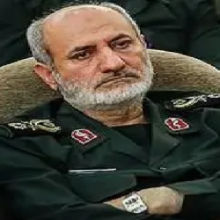
Director of the IRGC Intelligence Organization
IRGC and IRGC-Quds Force
The Council on Foreign Relations describe the IRGC and Quds Force as Iran’s “primary mechanism for cultivating and supporting terrorists abroad.”Greg Bruno, “State Sponsors: Iran,” Council on Foreign Relations, last updated October 13, 2011, http://www.cfr.org/iran/state-sponsors-iran/p9362. According to a 2010 Pentagon report, the Quds Force “maintains operational capabilities around the world,” and “it is well established in the Middle East and North Africa and recent years have witnessed an increased presence in Latin America, particularly Venezuela.”Bill Gertz, “Iran Boosts Qods Shock Troops in Venezuela,” Washington Times, April 21, 2010, http://www.washingtontimes.com/news/2010/apr/21/iran-boosts-qods-shock-troops-in-venezuela/. Further, the report concluded that if “U.S. involvement in conflict in these regions deepens, contact with the IRGC-QF, directly or through extremist groups it supports, will be more frequent and consequential.”Bill Gertz, “Iran Boosts Qods Shock Troops in Venezuela,” Washington Times, April 21, 2010, http://www.washingtontimes.com/news/2010/apr/21/iran-boosts-qods-shock-troops-in-venezuela/. Illustrating this point, Ayatollah Ali Khamenei in 2012 reportedly ordered the Quds Force to step up attacks against Western targets in retaliation for U.S.-backing of Syrian rebels in that country’s civil war.Con Coughlin, “Iran’s Supreme Leader Orders Fresh Terror Attacks on West,” Telegraph (London), August 22, 2012, http://www.telegraph.co.uk/news/worldnews/middleeast/iran/9490878/Irans-supreme-leader-orders-fresh-terror-attacks-on-West.html.
According to a 2013 bill in the U.S. House of Representatives to label the Quds Force a terrorist organization, the Quds Force “stations operatives in foreign embassies, charities, and religious and cultural institutions to foster relationships, often building on existing socio-economic ties with the well-established Shia Diaspora, and recent years have witnessed an increased presence in Latin America.”“Text of H.R. 854: Qods Force Terrorist Designation Act (Introduced Version),” GovTrack.us, February 27, 2013, https://www.govtrack.us/congress/bills/113/hr854/text.
The IRGC and IRGC-QF have been accused of the following acts in individual countries:
Afghanistan:
Argentina:
Austria:
Azerbaijan:
Bahrain:
Cyprus
Georgia
Germany:
India:
Iran:
Iraq:
Israel:
Lebanon:
Mexico:
Saudi Arabia:
Syria:
Syria is Iran’s main supply route to Hezbollah in Lebanon“Country Reports on Terrorism 2013,” U.S. Department of State, April 30, 2014. http://www.state.gov/j/ct/rls/crt/2013/224826.htm. and thus a strategic asset. As such, the Iranian government has an interest in keeping besieged Syrian President Bashar Assad in power.
Turkey:
United States:
Yemen
The Basij:
While it was involved in the Iran-Iraq War, the Basij was primarily a domestic organization within Iran, where it acted as an extra-judicial police force.
Naval Activities:
The IRGC naval branch has seized foreign oil tankers and harassed ships in or near Iranian waters.
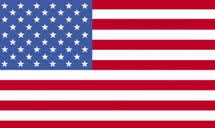
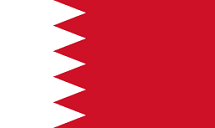
Bahrain designated the Islamic Revolutionary Guard Corps as a group suspected of terrorism on October 23, 2018.“Saudi, Bahrain add Iran's Revolutionary Guards to terrorism lists,” Reuters, October 23, 2018, https://www.reuters.com/article/us-saudi-bahrain-security-iran/saudi-bahrain-add-irans-revolutionary-guards-to-terrorism-lists-idUSKCN1MX288.
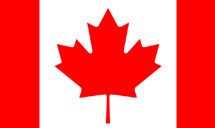
Canada listed Islamic Revolutionary Guard Corps’ Qods Force as a terrorist entity in December 2012.“Currently Listed Entities,” Public Safety Canada, accessed February 25, 2015, http://www.publicsafety.gc.ca/cnt/ntnl-scrt/cntr-trrrsm/lstd-ntts/crrnt-lstd-ntts-eng.aspx.
Canada designated the Islamic Revolutionary Guard Corps as a terrorist entity on June 19, 2024.“Currently Listed Entities,” Public Safety Canada, accessed June 20, 2024, https://www.publicsafety.gc.ca/cnt/ntnl-scrt/cntr-trrrsm/lstd-ntts/crrnt-lstd-ntts-en.aspx#2024-02.
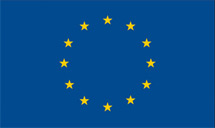
The European Union levied financial sanctions on the Islamic Revolutionary Guard Corps in March 2012.“COUNCIL REGULATION (EU) No 267/2012 of 23 March 2012 concerning restrictive measures against Iran and repealing Regulation (EU) No 961/2010,” Official Journal of the European Union, March 24, 2012, http://eur-lex.europa.eu/LexUriServ/LexUriServ.do?uri=OJ:L:2012:088:0001:0112:EN:PDF. The European Union has also levied financial sanctions on individuals affiliated with the IRGC, including: Qasem Soleimani,“European Union Consolidated Financial Sanctions List,” European Commission, October 16, 2017, https://eeas.europa.eu/headquarters/headquarters-homepage_en/8442/Consolidated%20list%20of%20sanctions. Chief of IRGC Joint Staff Ali Akbar Ahmadian,“European Union Consolidated Financial Sanctions List,” European Commission, October 16, 2017, https://eeas.europa.eu/headquarters/headquarters-homepage_en/8442/Consolidated%20list%20of%20sanctions. Basij commander Mohamed-Reza Naqdi,“European Union Consolidated Financial Sanctions List,” European Commission, October 16, 2017, https://eeas.europa.eu/headquarters/headquarters-homepage_en/8442/Consolidated%20list%20of%20sanctions; “COUNCIL REGULATION (EU) No 359/2011 of 12 April 2011 concerning restrictive measures directed against certain persons, entities and bodies in view of the situation in Iran,” European Commission, April 14, 2011, http://eur-lex.europa.eu/LexUriServ/LexUriServ.do?uri=OJ:L:2011:100:0001:0011:EN:PDF. IRGC General Commander Muhamed Ali Jafari,“European Union Consolidated Financial Sanctions List,” European Commission, October 16, 2017, https://eeas.europa.eu/headquarters/headquarters-homepage_en/8442/Consolidated%20list%20of%20sanctions; “COUNCIL REGULATION (EU) No 359/2011 of 12 April 2011 concerning restrictive measures directed against certain persons, entities and bodies in view of the situation in Iran,” European Commission, April 14, 2011, http://eur-lex.europa.eu/LexUriServ/LexUriServ.do?uri=OJ:L:2011:100:0001:0011:EN:PDF. and IRGC Intelligence Commander Hussayn Taeb.“European Union Consolidated Financial Sanctions List,” European Commission, October 16, 2017, https://eeas.europa.eu/headquarters/headquarters-homepage_en/8442/Consolidated%20list%20of%20sanctions; “COUNCIL REGULATION (EU) No 359/2011 of 12 April 2011 concerning restrictive measures directed against certain persons, entities and bodies in view of the situation in Iran,” European Commission, April 14, 2011, http://eur-lex.europa.eu/LexUriServ/LexUriServ.do?uri=OJ:L:2011:100:0001:0011:EN:PDF. On April 12, 2021, the European Union sanctioned IRGC chief Hossein Salami, Basij head Gholamreza Soleimani, IRGC Ground Forces chief Mohammad Pakpour, and IRGC commander Hassan Shahvarpour for their response to the November 2019 demonstrations in Iran.Official Journal of the European Union, “COUNCIL IMPLEMENTING DECISION (CFSP) 2021/585 of 12 April 2021,” Eur-Lex, April 12, 2021, https://eur-lex.europa.eu/legal-content/EN/TXT/?uri=uriserv%3AOJ.LI.2021.124.01.0007.01.ENG&toc=OJ%3AL%3A2021%3A124I%3ATOC; “Iran: Council concludes annual review of the EU’s Iran human rights sanctions regime,” European Council, April 12, 2021, https://www.consilium.europa.eu/en/press/press-releases/2021/04/12/iran-council-reviews-eu-human-rights-sanctions-regime/.
On November 14, 2022, the European Union sanctioned the following individuals and entities over their alleged roles in the security crackdown against massive anti-government protests:
On January 23, 2023, the European Union sanctioned the following individuals and entities because of their participation in restrictive measures directed against certain persons, entities, and bodies in view of the situation in Iran:
On April 24, 2023, the European Union sanctioned the following individuals because of their responsibility for serious human rights violations in Iran:
On June 26, 2023, the Council of the European Union sanctioned Mojtaba Fada, commander of IRGC forces in Isfahan province, for overseeing the actions of the IRGC and other security forces in response to anti-government protests.“Iran: Council targets seven individuals over serious human rights violations” Council of the European Union, June 26, 2023, https://www.consilium.europa.eu/en/press/press-releases/2023/06/26/iran-council-targets-seven-individuals-over-serious-human-rights-violations/; Official Journal of the European Union, “COUNCIL IMPLEMENTING REGULATION (EU) 2023/…of 26 June 2023 implementing Regulation (EU) No 359/2011 concerning restrictive measures directed against certain persons, entities and bodies in view of the situation in Iran,” EUR-Lex, June 26, 2023, https://eur-lex.europa.eu/legal-content/EN/TXT/?uri=uriserv%3AOJ.LI.2023.160.01.0001.01.ENG&toc=OJ%3AL%3A2023%3A160I%3ATOC.
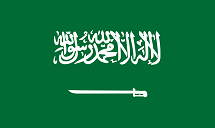
Saudi Arabia designated the Islamic Revolutionary Guard Corps as a group suspected of terrorism on October 23, 2018. Saudi Arabia also designated Quds Force commander Qasem Soleimani and Quds Force member Hamed Abdollahi and Abdul Reza Shahlai.“Saudi, Bahrain add Iran's Revolutionary Guards to terrorism lists,” Reuters, October 23, 2018, https://www.reuters.com/article/us-saudi-bahrain-security-iran/saudi-bahrain-add-irans-revolutionary-guards-to-terrorism-lists-idUSKCN1MX288.
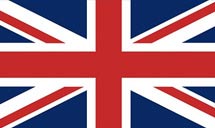
On October 12, 2011, Morteza Tamaddon, former IRGC governor-general of Tehran province.“Consolidated List of Financial Sanctions Targets in the UK,” Gov.UK, last updated November 14, 2022, https://assets.publishing.service.gov.uk/government/uploads/system/uploads/attachment_data/file/1117163/iran__human_rights_.pdf.
On March 29, 2012, the United Kingdom designated Mohamed Sadeghi, Technical and Cyber deputy of the IRGC’s Intelligence Office.“Consolidated List of Financial Sanctions Targets in the UK,” Gov.UK, last updated November 14, 2022, https://assets.publishing.service.gov.uk/government/uploads/system/uploads/attachment_data/file/1117163/iran__human_rights_.pdf.
On December 31, 2020, the United Kingdom designated:
On October 10, 2022, the United Kingdom designated Hassan Shahvarpouri, commander of the IRGC in Khuzestan Province and deputy head of the South-west Karbala Headquarters.“Consolidated List of Financial Sanctions Targets in the UK,” Gov.UK, last updated November 14, 2022, https://assets.publishing.service.gov.uk/government/uploads/system/uploads/attachment_data/file/1117163/iran__human_rights_.pdf.
On November 14, 2022, the United Kingdom sanctioned the following individuals for their alleged roles in the security crackdown against massive anti-government protests:
On April 24, 2023, the United Kingdom sanctioned the following individuals under the Iran (Human Rights) sanctions regime:
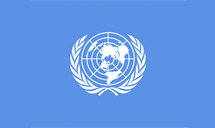
The United Nations designated several individuals affiliated with the IRGC, including Qasem Soleimani on March 24, 2007;“The List established by resolution 2231 (2015) and maintained by the Security Council,” United Nations, January 17, 2016, http://www.un.org/en/sc/2231/2231%20List_17%20Jan.pdf Mohammad Reza Naqdi on March 3, 2008;“The List established by resolution 2231 (2015) and maintained by the Security Council,” United Nations, January 17, 2016, http://www.un.org/en/sc/2231/2231%20List_17%20Jan.pdf. and IRGC Air Force Commander Salimi Hosein on December 23, 2006.“The List established by resolution 2231 (2015) and maintained by the Security Council,” United Nations, January 17, 2016, http://www.un.org/en/sc/2231/2231%20List_17%20Jan.pdf.
The IRGC-Quds Force provides training, logistical assistance and material and financial support to many extremist groups. For example:
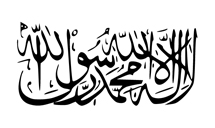
The U.S. government has accused the IRGC’s Quds Force of providing logistical, financial, and material support to the Taliban.“Treasury Sanctions Five Individual Tied to Iranian Ploy to Assassinate the Saudi Arabian Ambassador to the United States,” U.S. Department of the Treasury, October 11, 2011, http://www.treasury.gov/press-center/press-releases/pages/tg1320.aspx. General Hossein Musavi and Colonel Hasan Mortezavi, senior IRGC members, were designated on August 3, 2011 as terrorists under Executive Order 13224 for providing financial and material support to the Taliban.Bill Roggio, “Iranian Qods Force commanders linked to Taliban: US Treasury,” Long War Journal, August 6, 2010, http://www.longwarjournal.org/archives/2010/08/iranian_qods_force_c.php. On October 23, 2018, the Treasury Department and the Terrorist Financing Targeting Center (TFTC) designated IRGC officers Mohammad Ebrahim Owhadi and Esma’il Razavi for providing support to the Taliban. The TFTC is an international organization that includes Saudi Arabia, Bahrain, Kuwait, Oman, Qatar, and the United Arab Emirates.“Treasury and the Terrorist Financing Targeting Center Partners Sanction Taliban Facilitators and their Iranian Supporters,” U.S. Department of the Treasury, October 23, 2018, https://home.treasury.gov/news/press-releases/sm532.
In 2010, ISAF General Stanley McChrystal stated that Iran was training Taliban insurgents and providing them with weapons. This was corroborated by a Taliban commander who stated that Iran was training Taliban fighters in “small unit tactics” because they “both want to kill Americans.”Bill Roggio, “Iranian Qods Force commanders linked to Taliban: US Treasury,” Long War Journal, August 6, 2010, http://www.longwarjournal.org/archives/2010/08/iranian_qods_force_c.php. The U.S. government has accused the IRGC of providing the Taliban with 107mm rockets.“Country Reports on Terrorism 2010,” U.S. Department of the Treasury, August 18 2011, http://www.state.gov/j/ct/rls/crt/2010/170260.htm.
On October 13, 2017, the U.S. Department of the Treasury sanctioned the IRGC for its support of the Taliban and other groups. “Non-proliferation Designations; Iran Designations; Counter Terrorism Designation Update,” U.S. Department of the Treasury, October 13, 2017, https://www.treasury.gov/resource-center/sanctions/OFAC-Enforcement/Pages/20171013.aspx;
“Treasury Designates the IRGC under Terrorism Authority and Targets IRGC and Military Supporters under Counter-Proliferation Authority,” U.S. Department of the Treasury, October 13, 2017, https://www.treasury.gov/press-center/press-releases/Pages/sm0177.aspx.
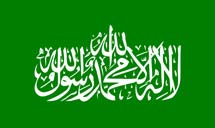
The U.S. government has accused the IRGC’s Quds Force of providing logistical, financial, and material support to Hamas.“Treasury Sanctions Five Individual Tied to Iranian Ploy to Assassinate the Saudi Arabian Ambassador to the United States,” U.S. Department of the Treasury, October 11, 2011, http://www.treasury.gov/press-center/press-releases/pages/tg1320.aspx. IRGC head General Mohammad Ali Jafari admitted in November 2012 to transferring missile technology and other military assistance to Hamas.Ashish Kumar Sen, “Iran Admits Giving Hamas Technology for Missiles,” Washington Times, November 21, 2012, http://www.washingtontimes.com/news/2012/nov/21/iran-admits-giving-hamas-technology-for-missiles/.
Khaled Meshaal, the former head of Hamas’s political bureau, has traveled to Iran to improve ties and receive increased material support. “We [Hamas] stretch our hand of cooperation for materializing the Palestinian cause, because Palestine is an essential issue that needs more efforts,” Mahmoud al-Zahar, a senior Hamas official, told Al-Manar television, a network affiliated with Hezbollah.“Hamas asks for more Iran’s support,” Tehran Times, January 15, 2015, http://www.tehrantimes.com/politics/121455-hamas-asks-for-more-irans-support.
On October 13, 2017, the U.S. Department of the Treasury sanctioned the IRGC for its support of Hamas and other groups.“Non-proliferation Designations; Iran Designations; Counter Terrorism Designation Update,” U.S. Department of the Treasury, October 13, 2017, https://www.treasury.gov/resource-center/sanctions/OFAC-Enforcement/Pages/20171013.aspx; “Treasury Designates the IRGC under Terrorism Authority and Targets IRGC and Military Supporters under Counter-Proliferation Authority,” U.S. Department of the Treasury, October 13, 2017, https://www.treasury.gov/press-center/press-releases/Pages/sm0177.aspx.
On October 7, 2023, Hamas launched a multi-pronged attack on Israel, killing at least 1,200 and taking over 240 hostages into Gaza during the Jewish Sabbath and the holiday of Simchat Torah. Hamas gunmen infiltrated at least 22 Israeli towns and military bases within 15 miles of the Gaza border, killing civilians and soldiers.Josef Federman and Issam Adwan, “Hamas surprise attack out of Gaza stuns Israel and leaves hundreds dead in fighting, retaliation,” Associated Press, October 7, 2023, https://apnews.com/article/israel-palestinians-gaza-hamas-rockets-airstrikes-tel-aviv-11fb98655c256d54ecb5329284fc37d2; “Israeli forces conducting ‘wide-scale strikes’ on Hamas centers in Gaza. Here’s everything you need to know,” CNN, October 9, 2023, https://www.cnn.com/middleeast/live-news/israel-hamas-gaza-attack-10-09-23/h_adebb4147fc4a83751908555ec54b8c0; Lauren Frayer, “Israel revises down its death toll from the Oct. 7 Hamas attacks to about 1,200,” NPR, November 11, 2023, https://www.npr.org/2023/11/11/1212458974/israel-revises-death-toll-hamas-attacks-oct-7. A December 2023 IRGC statement claimed the October 7 attack was retaliation for the January 2020 assassination of Quds Force commander Qasem Soleimani by the United States, though Hamas denied the claim.Jerusalem Post staff and Reuters, “October 7 massacre was retaliation for Soleimani killing, Iran says – report,” Jerusalem Post, December 27, 2023, https://www.jpost.com/breaking-news/article-779705. After IRGC commander Mohammad Reza Zahedi died in an April 1, 2024, Israeli airstrike on the Iranian consulate in Damascus, Syria, reports emerged that Zahedi had played a key role in orchestrating the October 7 attack.“Iranian General Killed In Israeli Strike Was Architect Of October 7,” Iran International, April 4, 2024, https://www.iranintl.com/en/202404043146.
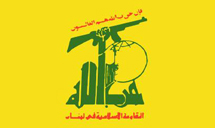
The Iranian government uses the IRGC Quds Force to transfer cash and weaponry to Hezbollah in Lebanon.Matthew Levitt, “Hezbollah Finances: Funding the Party of God,” Washington Institute for Near East Policy, February 2005, http://www.washingtoninstitute.org/policy-analysis/view/hezbollah-finances-funding-the-party-of-god. On October 13, 2017, the U.S. Department of the Treasury sanctioned the IRGC for its support of Hezbollah and other groups.“Non-proliferation Designations; Iran Designations; Counter Terrorism Designation Update,” U.S. Department of the Treasury, October 13, 2017, https://www.treasury.gov/resource-center/sanctions/OFAC-Enforcement/Pages/20171013.aspx; “Treasury Designates the IRGC under Terrorism Authority and Targets IRGC and Military Supporters under Counter-Proliferation Authority,” U.S. Department of the Treasury, October 13, 2017, https://www.treasury.gov/press-center/press-releases/Pages/sm0177.aspx.
Israeli authorities have accused the IRGC of directly arming Hezbollah. On November 4, 2009, Israel intercepted merchant vessel FRANCOP carrying 36 containers (60 tons) of weapons to Hezbollah. The cache includes 122mm katyushas, 107mm rockets, 106mm antitank shells, hand grenades and light-weapon ammunitions.Anshel Pfeffer, “Israel seizes ship in Mediterranean carrying more than 3,000 rockets,” Haaretz, November 5, 2009, http://www.haaretz.com/print-edition/news/israel-seizes-ship-in-mediterranean-carrying-more-than-3-000-rockets-1.4742 The weapons transfer was reportedly coordinated by the IRGC, given its bases in Lebanon and financial support for Hezbollah, which is estimated at $100-200 million annually.Matthew Levitt, “Hezbollah Finances: Funding the Party of God,” Washington Institute for Near East Policy, February 2005, http://www.washingtoninstitute.org/policy-analysis/view/hezbollah-finances-funding-the-party-of-god. An Iranian IRGC commander and six Hezbollah fighters were killed on January 18, 2015, by an Israeli strike, indicating increased cooperation between Iran and Hezbollah.Ali Alfoneh and Bill Roggio, “Senior Qods Force general killed in suspected Israeli airstrike,” Long War Journal, January 19, 2015, http://www.longwarjournal.org/archives/2015/01/senior_qods_force_ge.php. Israel has subsequently targeted multiple Iranian targets in Syria that it says were aiding Hezbollah.Shari Miller, “Israeli bomber jets 'kill 12 members of Iran's Revolutionary Guard' in Syrian airstrike,” Daily Mail, December 3, 2017, http://www.dailymail.co.uk/news/article-5140939/Israeli-jets-kill-12-Irans-Revolutionary-Guard.html; “12 Iranians killed in 'Israeli strike' in Syria, Arab media reports say,” i24 News, December 2, 2017, https://www.i24news.tv/en/news/international/middle-east/161747-171202-12-iranians-killed-in-israeli-strike-in-syria-arabic-media-reports; Rory Jones, “Israel Warns Syria About Iranian Role,” Wall Street Journal, December 4, 2017, https://www.wsj.com/articles/israel-warns-syria-about-iranian-role-1512383401.
IRGC officials have openly stated their military and financial support for Hezbollah. “The Islamic Republic of Iran has helped Iraq, Syria, Palestine and the Lebanese Hezbollah by exporting the technology that it has for the production of missiles and other equipment, and they can now stand against the Zionist regime, the ISIL [Islamic State group] and other Takfiri [apostate] groups and cripple them,” IRGC aerospace force commander Brigadier General Amir Ali Hajizadeh said in February 2015.Stuart Winer, “Iran Boasts of Rocket Aid to Palestinians, Hezbollah,” Times of Israel, February 3, 2015, http://www.timesofisrael.com/iran-boasts-of-rocket-aid-to-palestinians-hezbollah/. In October 2018, IRGC commander Mohammad Ali Jafari pledged that Iran would “stand side by side the Lebanese Hezbollah until Israel is totally annihilated.”“IRGC Commander And Senior Cleric Threaten Israel,” Radio Farda, October 12, 2018, https://en.radiofarda.com/a/irgc-commander-senior-iran-cleric-threaten-israel/29540752.html.
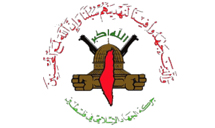
The IRGC has provided Palestinian Islamic Jihad (PIJ) with “training, logistical assistance and material and financial support,” according to the U.S. Department of the Treasury.Holly Fletcher, “Palestinian Islamic Jihad,” Council on Foreign Relations, April 10, 2008, http://www.cfr.org/israel/palestinian-islamic-jihad/p15984. The IRGC reportedly began sending support after PIJ was exiled to Lebanon in 1987.Holly Fletcher, “Palestinian Islamic Jihad,” Council on Foreign Relations, April 10, 2008, http://www.cfr.org/israel/palestinian-islamic-jihad/p15984.
Between August 5 and August 7, 2022, PIJ launched approximately 1,100 projectiles toward Israel in a conflict that also saw Israel strike multiple PIJ targets across the Gaza Strip and kill two senior PIJ commanders. During an August 6 meeting in Tehran between PIJ leader Ziad al-Nakhalah IRGC commander-in-chief Hossein Salami, Salami pledged the Palestinians were not alone and the IRGC was with them “until the end.”Agence France-Presse, “Iran’s IRGC says Palestinians ‘not alone’ in fight against Israel,” Al Arabiya, August 6, 2022, https://english.alarabiya.net/News/middle-east/2022/08/06/Iran-s-IRGC-says-Palestinians-not-alone-in-fight-against-Israel-; Fares Akram and Tia Goldenberg, “Cease-fire between Palestinians, Israel takes effect in Gaza,” Associated Press, August 8, 2022, https://apnews.com/article/middle-east-israel-militant-groups-gaza-strip-0c1565488cc2dc03f80200edcdd49a56.
According to a 2010 Pentagon report, Quds Force members are actively developing terrorist networks in Venezuela and other parts of Latin America to attack the United States in the event of a breakdown in the nuclear negotiations between Iran and the West.Bill Gertz, “Iran Boosts Qods Shock Troops in Venezuela,” Washington Times, April 21, 2010, http://www.washingtontimes.com/news/2010/apr/21/iran-boosts-qods-shock-troops-in-venezuela/. The report further claims the Quds Force engages in “paramilitary operations to support extremists and destabilize unfriendly regimes.”Bill Gertz, “Iran Boosts Qods Shock Troops in Venezuela,” Washington Times, April 21, 2010, http://www.washingtontimes.com/news/2010/apr/21/iran-boosts-qods-shock-troops-in-venezuela/.
The Iranian regime has been a long-time benefactor of the PFLP-GC, providing logistical, financial, and material support, according to the U.S. government.“PFLP, DFLP, PFLP-GC, Palestinian Leftists,” Council on Foreign Relations, October 31, 2005, http://www.cfr.org/israel/pflp-dflp-pflp-gc-palestinian-leftists/p9128. Iran and the PFLP-GC were the prime suspects in the aftermath of the 1988 bombing of Pan-Am Flight 103.Michael Wines, “Palestinian Group and Iran Tied to Pan Am Bomb,” New York Times, February 8, 1989, http://www.nytimes.com/1989/02/08/world/palestinian-group-and-iran-tied-to-pan-am-bomb.html. U.S. officials have said there is “no question” about ties between Iran and the PFLP-GC.Michael Wines, “Palestinian Group and Iran Tied to Pan Am Bomb,” New York Times, February 8, 1989, http://www.nytimes.com/1989/02/08/world/palestinian-group-and-iran-tied-to-pan-am-bomb.html.
The IRGC reportedly plotted with Mexican drug cartel Los Zetas in 2011 to blow up the Israeli embassy in Washington and the Saudi and Israeli Embassies in Argentina.Charlie Savage and Scott Shane, “Iranians Accused of a Plot to Kill Saudis’ U.S. Envoy,” New York Times, October 11, 2011, http://www.nytimes.com/2011/10/12/us/us-accuses-iranians-of-plotting-to-kill-saudi-envoy.html.
According to a 2010 Pentagon report, Quds Force members are actively developing terrorist networks in Venezuela and other parts of Latin America to attack the United States in the event of a breakdown in the nuclear negotiations between Iran and the West.Bill Gertz, “Iran Boosts Qods Shock Troops in Venezuela,” Washington Times, April 21, 2010, http://www.washingtontimes.com/news/2010/apr/21/iran-boosts-qods-shock-troops-in-venezuela/. The report further claims the Quds Force engages in “paramilitary operations to support extremists and destabilize unfriendly regimes.”Bill Gertz, “Iran Boosts Qods Shock Troops in Venezuela,” Washington Times, April 21, 2010, http://www.washingtontimes.com/news/2010/apr/21/iran-boosts-qods-shock-troops-in-venezuela/.
Harakat Hezbollah al-Nujaba (“the Virtuous”) is an Iraqi Shiite militia that has fought against ISIS as part of Iraq’s Popular Mobilization Forces (PMF) in both Iraq and Syria.Babak Dehghanpisheh, “Special Report: The Iraqi militia helping Iran carve a road to Damascus,” Reuters, September 22, 2017, https://www.reuters.com/article/us-mideast-crisis-iraq-nujaba-specialrep/special-report-the-iraqi-militia-helping-iran-carve-a-road-to-damascus-idUSKCN1BX11N. The 10,000-man-strong group is loyal to Iran and reportedly answered directly to Quds Force commander Qasem Soleimani, whom al-Nujaba has praised in online media for fighting the United States and ISIS. Al-Nujaba has declared that it and Hezbollah are “the twins of the resistance.”Amir Toumaj, “IRGC-controlled Iraqi militia forms ‘Golan Liberation Brigade,’” Long War Journal, March 12, 2017, https://www.longwarjournal.org/archives/2017/03/irgc-controlled-iraqi-militia-forms-golan-liberation-brigade.php; Amir Toumaj, “Soleimani’s presence in Aleppo underscores strategy of crushing rebels,” Long War Journal, September 7, 2016, https://www.longwarjournal.org/archives/2016/09/soleimanis-presence-in-aleppo-underscores-strategy-of-crushing-rebels.php
In March 2017, the Quds Force reportedly developed a new branch of al-Nujaba called the Golan Liberation Brigade, named for the Golan Heights, which Israel captured from Syria in the 1967 Six Day War. That November, the leader of al-Nujaba, Sheikh Akram al-Ka’abi, told media that his group and the Golan Liberation Brigade stood ready to “participate in any war with the Syrian Arab Army to liberate the Golan if the Syrian state agrees or requests so.”Dov Lieber, “Iran-backed militia in Syria says it’s ‘fully prepared’ to battle Israel,” Times of Israel, November 27, 2017, https://www.timesofisrael.com/iran-backed-militia-in-syria-says-its-fully-prepared-to-battle-israel/. Al-Nujaba claims that multiple special forces comprise the Golan Liberation Brigade. A March 2017 al-Nujaba video featured columns of its soldiers marching with a banner declaring that “Israel will be destroyed.”Amir Toumaj, “IRGC-controlled Iraqi militia forms ‘Golan Liberation Brigade,’” Long War Journal, March 12, 2017, https://www.longwarjournal.org/archives/2017/03/irgc-controlled-iraqi-militia-forms-golan-liberation-brigade.php.
Iran has threatened to use the IRGC to repel foreign attacks on Syria.Ian Black, “Iran Confirms It Has Forces in Syria and Will Take Military Action If Pushed,” Guardian (London), September 16, 2012, http://www.theguardian.com/world/2012/sep/16/iran-middleeast. The IRGC has “several hundred” operatives in Syria advising the Syrian army and fighting on behalf of Syrian President Bashar al-Assad in his country’s civil war.Ruth Sherlock, “Iran Boosts Support to Syria,” Telegraph, February 21, 2014, http://www.telegraph.co.uk/news/worldnews/middleeast/iran/10654144/Iran-boosts-support-to-Syria.html. In October 2018, IRGC spokesman Ramezan Sharif pledged that IRGC forces would remain in Syria as long as Tehran finds it “effective and useful” and as long as the Syrian government demands it.“Iran will keep ‘effective, useful’ advisory presence in Syria: IRGC,” PressTV, October 13, 2018, https://www.presstv.com/Detail/2018/10/13/576922/IRGC-Sharif-Syria-Yemen-advisory-exclusive.
The U.S. Treasury Department has also accused Iran of using its oil industry to aid the Assad regime in Syria. According to Treasury, Syrian national Mohammad Amer Alchwiki and his Russia-based Global Vision Group aid the delivery of oil from Iran to Syria as well as financial transfers from Iran to its terrorist proxies.“Treasury Designates Illicit Russia-Iran Oil Network Supporting the Assad Regime, Hizballah, and HAMAS,” U.S. Department of the Treasury, November 20, 2018, https://home.treasury.gov/news/press-releases/sm553.
The IRGC plays a central role in Iran’s supportive relationship with Venezuelan dictator Nicolás Maduro. In April 2019, Iranian Foreign Minister Javad Zarif offered to send the IRGC to Venezuela to protect Maduro in light of growing opposition as Venezuela struggles with food and medicine shortages.“Iran could send Revolutionary Guards to Venezuela, foreign minister says,” New Arab, April 16, 2019, https://english.alaraby.co.uk/english/news/2019/4/16/iran-to-send-revolutionary-guards-to-venezuela. Despite U.S. sanctions on Iran’s oil industry, Iran began shipping gasoline to the South American country in May 2020.Scott Smith, “1st Iranian ship reaches Venezuela with no sign of US threat,” Associated Press, May 23, 2020, https://apnews.com/article/3c13057a3a2c14a4da8789950da54fff. In July 2020, an IRGC-linked grocery retailer opened in Venezuela. According to the U.S. government, any Iranian business must receive authorization from the IRGC to operate overseas.Ian Talley and Benoit Faucon, “Iranian Military-Owned Conglomerate Sets Up Shop in Venezuela,” Wall Street Journal, July 5, 2020, https://www.wsj.com/articles/iranian-military-owned-conglomerate-sets-up-shop-in-venezuela-11593972015. In August 2020, Maduro announced he was considering buying missiles from Iran.“Maduro says Venezuela buying Iranian missiles ‘a good idea,’” Reuters, August 22, 2020, https://www.reuters.com/article/us-venezuela-iran/maduro-says-venezuela-buying-iranian-missiles-a-good-idea-idUSKBN25I0TU. That October, U.S. officials threatened to destroy any weapon shipments from Iran to Venezuela.Rich Edson, “US threatens to destroy Iranian missiles shipped to Venezuela,” Fox News, October 26, 2020, https://www.foxnews.com/politics/us-threatens-to-destroy-iranian-missiles-shipped-to-venezuela.
Extremists: Their Words. Their Actions.
Fact:
On May 8, 2019, Taliban insurgents detonated an explosive-laden vehicle and then broke into American NGO Counterpart International’s offices in Kabul. At least seven people were killed and 24 were injured.
Get the latest news on extremism and counter-extremism delivered to your inbox.